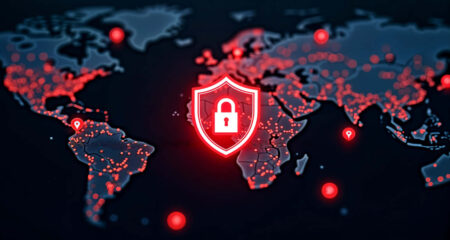 As digital threats rise, organisations worldwide are ramping up their cybersecurity efforts to protect valuable assets. Yet for many employees, cybersecurity awareness feels more like a nuisance than a necessity — often due to the lack of clear, actionable advice. Fear-based messages about risks like phishing and ransomware often freeze people, leaving them unsure of what steps to take.
As digital threats rise, organisations worldwide are ramping up their cybersecurity efforts to protect valuable assets. Yet for many employees, cybersecurity awareness feels more like a nuisance than a necessity — often due to the lack of clear, actionable advice. Fear-based messages about risks like phishing and ransomware often freeze people, leaving them unsure of what steps to take.
For more information on KnowBe4’s cybersecurity awareness training or to sign up, visit www.nclose.com/knowbe4-partner
What employees need isn’t more fear; they need tools and practical strategies to manage cyberthreats confidently. This article explores effective ways to empower employees with actionable solutions and build a culture of resilience.
The challenges of cyber-awareness fatigue
Cybersecurity programmes often emphasise awareness without providing clear, actionable steps. This approach can lead to “awareness fatigue”, where employees feel overwhelmed and disengaged. Anna Collard, senior vice president for content strategy and evangelist at KnowBe4 Africa, explains: “Constant warnings about cyberthreats can leave employees feeling like there’s no safe way forward, which leads to inaction.”
When employees see cyber risks as insurmountable, they may avoid addressing them altogether. Instead of creating a proactive culture, organisations inadvertently foster paralysis. To counter this, companies must focus on strategies that build confidence rather than fear.
Practical steps to empower employees
To create a proactive, positive security culture, organisations should focus on three key areas:
- Real-time guidance: Traditional training sessions often fail to stick, leaving employees unsure of what to do in critical moments. Real-time coaching tools like KnowBe4’s SecurityCoach bridge this gap by providing immediate, context-specific feedback. “When an employee clicks on a suspicious link, a prompt can explain why that action is dangerous and suggest safer alternatives,” Collard says. This approach builds cybersecurity habits naturally, empowering employees to take confident action when faced with risks.
- A balanced zero-trust mindset: The principle of “zero trust” assumes that no person or action is inherently safe, encouraging verification at every step. However, this doesn’t mean employees should operate in constant suspicion. Instead, zero-trust principles should be applied with a sense of cyber mindfulness – a calm, alert state where potential threats are evaluated without undue stress. “Zero trust becomes a proactive habit, not a source of fear,” Collard explains. By training employees to verify actions without feeling overwhelmed, organisations can foster a security-first mindset that’s both effective and sustainable.
- Empathetic phish testing: Phish testing is a practical way to strengthen employees’ ability to recognise phishing attempts, but it should be done empathetically. “The goal is not to shame those who fall for a test but to offer practical advice on avoiding similar mistakes,” Collard says. Supportive phish testing, paired with positive reinforcement, helps employees learn from their mistakes without fear of judgment. Over time, this builds their confidence and reinforces good cybersecurity habits.
Integrating security into daily workflows
One of the most effective ways to reduce cyber stress is by embedding security practices seamlessly into daily workflows. Tools like PhishER and SecurityCoach integrate cybersecurity processes into employees’ routines, making them a natural part of work rather than an additional burden.
“When security becomes second nature, employees feel empowered rather than intimidated,” Collard notes. Solutions that provide real-time feedback help employees develop better habits without the need for constant vigilance.

Building a resilient cybersecurity culture
Ultimately, the goal of any cybersecurity programme is to create a resilient workplace where employees feel equipped to handle threats without stress. By focusing on practical solutions, organisations can build a positive security culture where employees see themselves as active participants in safeguarding their digital environment.
Stephen Osler, co-founder and business development director at Nclose, emphasises the importance of shifting from fear-based awareness to practical empowerment. “When people see that they’re capable of managing cyber risks, they’re less likely to view cybersecurity as a nuisance and more as a valuable skill,” he says.
Looking ahead: confidence over fear
As cyber threats continue to evolve, organisations must adapt their approaches to stay ahead. A focus on practical training, real-time coaching and supportive feedback can transform cybersecurity from a source of stress into an area of strength.
“Cybersecurity doesn’t have to be about fear and stress,” Collard concludes. “With the right approach, we can empower employees to protect themselves and their organisations with confidence, making cybersecurity a shared responsibility.”
For more information on KnowBe4’s cybersecurity awareness training or to sign up, visit www.nclose.com/knowbe4-partner.
- Read more articles by KnowBe4 Africa on TechCentral
- This promoted content was paid for by the party concerned
Don’t miss:
TCS+ | Online scams in Africa: how cybercriminals trick victims




